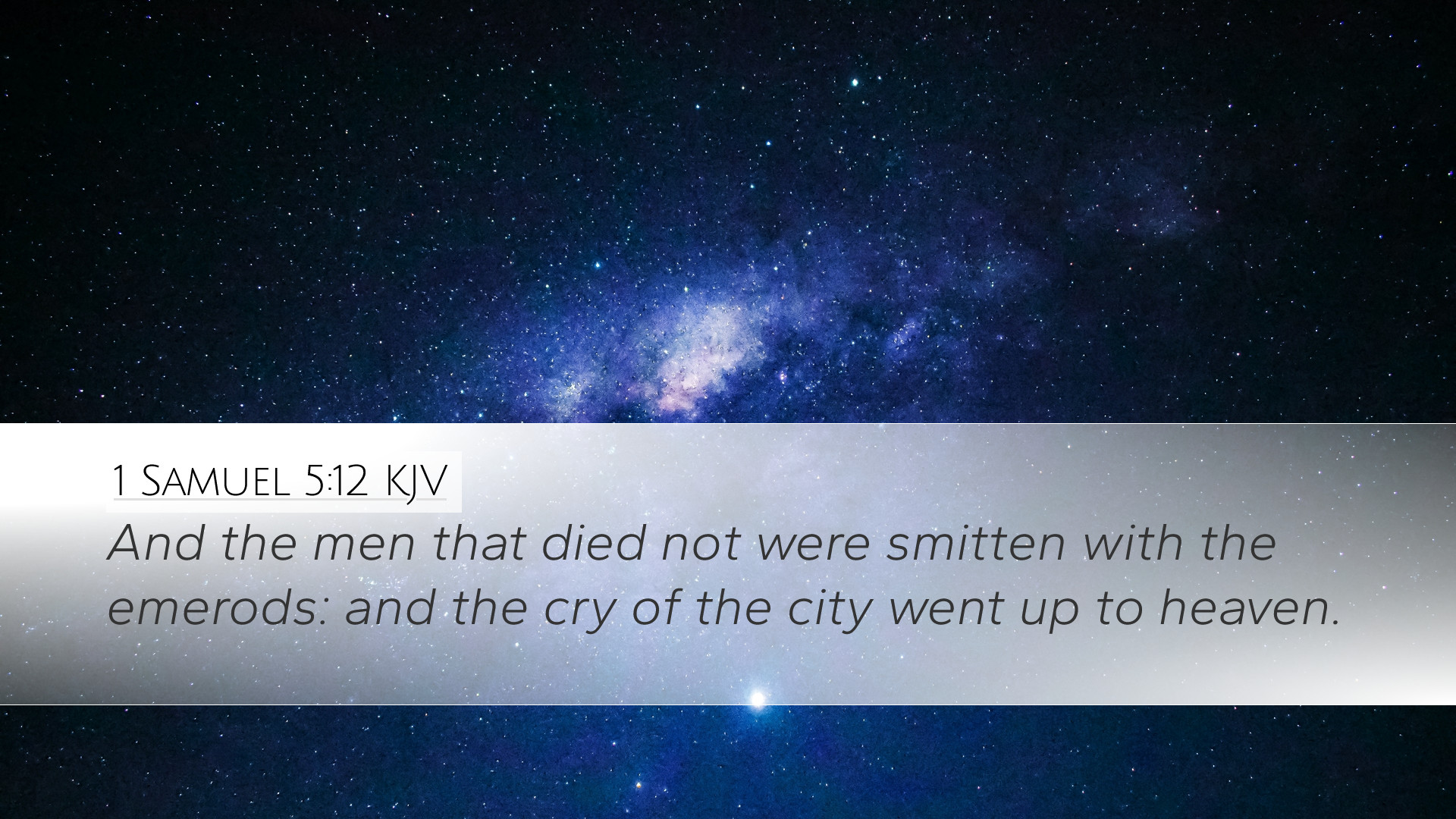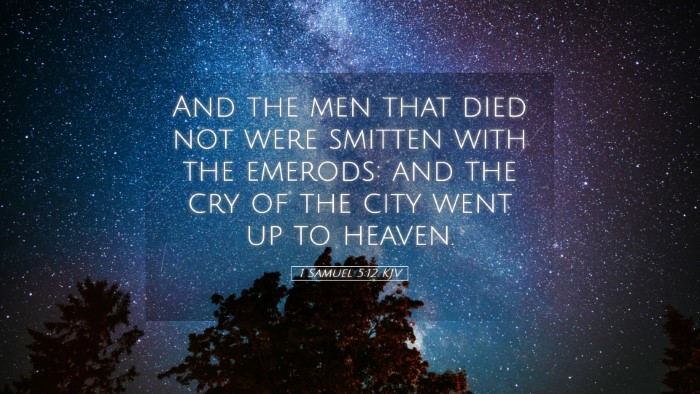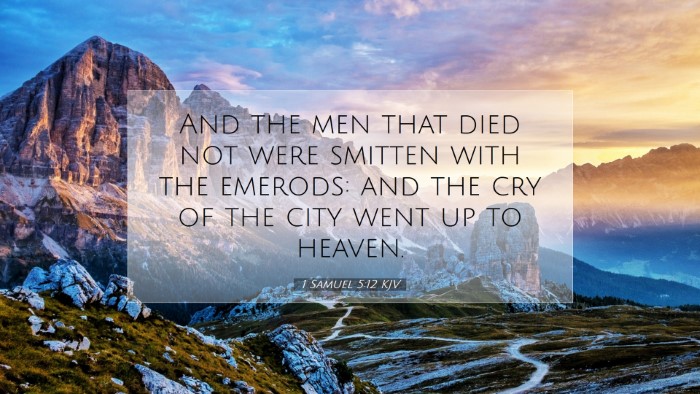1 Samuel 5:12 - A Commentary
Verse (1 Samuel 5:12): "And the men that died not were smitten with the emerods, and the cry of the city went up to heaven."
Introduction
This verse is part of the narrative that details the consequences faced by the Philistines after they captured the Ark of the Covenant. It serves as a stark reminder of the sovereignty of God and the peril of disrespecting His presence. The calamities that befell the Philistines provide rich insights into theological themes such as divine justice, the power of God, and the futility of idolatry.
Exegesis of the Verse
The verse recounts how the majority of those who did not die were afflicted with emerods. This term, often interpreted as tumors or hemorrhoids, indicates a severe and painful affliction. Matthew Henry notes that the afflictions were a direct judgment from God, highlighting how the Ark, a symbol of God’s presence, became a source of torment to those who held it in contempt.
Albert Barnes sketches the backdrop, where the Philistines, after their initial triumph in battle and capture of the Ark, faced immediate and inexplicable disasters. Their victory turned into an unspeakable suffering, a clear demonstration that God does not abandon His covenant, nor does He allow His honor to be trampled upon without consequence.
Theological Insights
- The Judgment of God: The affliction of emerods represents God's judgment. Adam Clarke argues that the afflictions faced by the Philistines were prophetic warnings and reminders of the fate awaiting those who act against God's will. This theological perspective invites believers to reflect on the seriousness of engaging with the holy things of God without due reverence.
- Divine Retribution: The verse exemplifies the principle of divine retribution. The Philistines' sufferings were not random but purposeful acts of a sovereign God responding to their blasphemies against the Ark. This theme brings to light God’s active engagement in the affairs of nations and individuals, affirming that He is ever present and responsive to injustice.
- The Power of the Sovereign God: The inability of the Philistines to stand against God’s judgment reinforces the sovereignty of God. Even a captured Ark remained a potent symbol — a reminder that no power on earth can defeat the Almighty. The narrative encourages reflection on God's unmatched authority in the face of human arrogance and idolatry.
Applications for Believers
This passage prompts modern readers, especially pastors and theologians, to consider the weight of their worship and the way they handle sacred things. Here are some applications drawn from this text:
- Reverence for God: The way the Philistines mishandled the Ark compels believers to approach God with a healthy fear and respect. It reminds us that flippancy in worship can lead to dire consequences.
- The Reality of Sin: The affliction of the Philistines serves as a reminder that sin carries weighty repercussions. Pastors are encouraged to speak truthfully about the consequences of sin, not only to promote fear but to lead congregants towards repentance and restoration.
- Hope in God’s Sovereignty: For those afflicted, the chapter provides solace in knowing that, despite appearances, God is in control. He ultimately works His purposes, and what seems like worldly triumph may just be the prelude to divine correction.
Conclusion
1 Samuel 5:12 is a poignant reminder of God's presence and power. The suffering of the Philistines underscores a vital truth: contempt for God and His servants is met with severe repercussions. This commentary, synthesized from classic biblical interpreters, encourages readers to hold fast to the truths of Scripture, recognizing both the majesty and the justice of our God.


